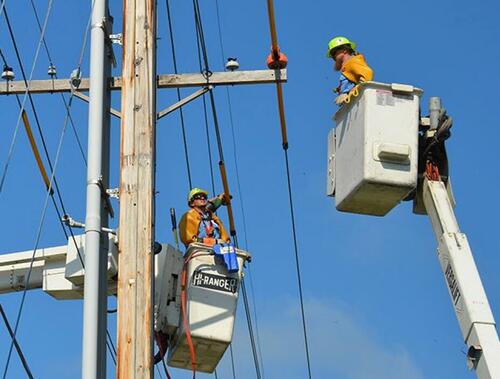
Internet "blackouts" as a result of a "wave of bankruptcies" in broadband networks could be on their way.
British daily newspaper The Telegraph noted this week that certain smaller broadband suppliers are "being pushed to the brink" that that the effects of inflation could eventually leave homes without connectivity.
Ofcom, the government-approved regulatory and competition authority for the broadcasting, telecommunications and postal industries of the United Kingdom, is already in the midst of drawing up "contingency plans" with telecom company BT to take on thousands of its customers if smaller suppliers begin to fail.
BT has seen more than 150 smaller challengers materialize and try and compete with it. Many of these companies have been backed by private equity, pension funds and sovereign wealth, the report notes.
But there could be too many cooks in the proverbial kitchen. The increased competition means that some companies are going to be "pushed to the brink", the report notes.
One industry source told The Telegraph: "It seems to be a bit of a red flashing light that Ofcom is thinking about it at all. It cannot be entirely sustainable when you already have big network builders."
Smaller provider People's Fibre was already bought out of bankruptcy/administration by Swish Fibre last December. The industry could face additional consolidation of this sort, the report says, quoting analysts in the space.
"...a wave of consolidation will eventually sweep through the broadband industry," some analysts said.
A spokesperson for Ofcom commented: "We keep a close eye on the broadband market to make sure we know what’s happening on the ground, as part of our work to support fibre investment and protect customers. Usually, when a network company fails, it’s sold as a going concern and customers don’t experience a loss of service. In the unlikely event that a network suddenly failed and ceased to provide services, we would work with alternative suppliers to help customers get reconnected as quickly as possible."
Internet “blackouts” as a result of a “wave of bankruptcies” in broadband networks could be on their way.
British daily newspaper The Telegraph noted this week that certain smaller broadband suppliers are “being pushed to the brink” that that the effects of inflation could eventually leave homes without connectivity.
Ofcom, the government-approved regulatory and competition authority for the broadcasting, telecommunications and postal industries of the United Kingdom, is already in the midst of drawing up “contingency plans” with telecom company BT to take on thousands of its customers if smaller suppliers begin to fail.
BT has seen more than 150 smaller challengers materialize and try and compete with it. Many of these companies have been backed by private equity, pension funds and sovereign wealth, the report notes.
But there could be too many cooks in the proverbial kitchen. The increased competition means that some companies are going to be “pushed to the brink”, the report notes.
One industry source told The Telegraph: “It seems to be a bit of a red flashing light that Ofcom is thinking about it at all. It cannot be entirely sustainable when you already have big network builders.”
Smaller provider People’s Fibre was already bought out of bankruptcy/administration by Swish Fibre last December. The industry could face additional consolidation of this sort, the report says, quoting analysts in the space.
“…a wave of consolidation will eventually sweep through the broadband industry,” some analysts said.
A spokesperson for Ofcom commented: “We keep a close eye on the broadband market to make sure we know what’s happening on the ground, as part of our work to support fibre investment and protect customers. Usually, when a network company fails, it’s sold as a going concern and customers don’t experience a loss of service. In the unlikely event that a network suddenly failed and ceased to provide services, we would work with alternative suppliers to help customers get reconnected as quickly as possible.”







